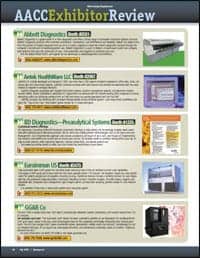IBT Laboratories announces that it has launched two tests to evaluate the response of patients whose immune systems may be compromised due to a primary immunodeficiency disorder, chemotherapy drugs, or because they are taking immuno-suppressing drugs to prevent rejection of a transplant. The company launched the two new assays, the T Cell Fx™ test and the Mannan Binding Lectin (MBL) Pathway Function Test, at the November 2008 meeting of the American College of Allergy Asthma and Immunology in Seattle.
According to IBT Founder and Chief Executive Officer, John F. Halsey, PhD, these two tests provide physicians with much greater insight into a patient’s immunology profile than was possible before. "We rely on our body’s immune system to defend us from infectious disease. When a patient has an unusual number of infections, physicians need a complete assessment of the capabilities of the patient’s immune system to respond to challenge by microorganisms. Both innate and adaptive immunity need to be evaluated. Previously, these kinds of tests were only used by the research community, and were not available in the clinical-diagnostics laboratory."
Regarding company strategy, Dr Halsey commented, "Our assay-development strategy at IBT is to work closely with leading allergists and immunologists to translate the latest research findings into new diagnostic tests that will help them better understand and manage their patients’ health status, and ultimately improve health outcomes."
The MBL pathway is one of the most important components of the innate immune system. IBT has developed a unique and quantitative serum test (MBL Pathway Function Test) to evaluate the effectiveness of this pathway. This test will be particularly useful to assess children with persistent, recurrent infections to determine whether their innate immune system is compromised. It will also help physicians to better manage transplant and oncology patients by identifying when prophylactic measures are appropriate.
T cells are a critical part of the patient’s adaptive immune system and IBT’s new T Cell Fx test provides a complete evaluation of the ability of a patient’s T cells to protect from viruses, yeast, and bacteria. The test, which looks at peripheral blood mononuclear cells from whole blood, will help physicians identify primary immunodeficiency in children with recurrent infections. For transplant populations, physicians can use the test to help monitor and manage the level of immuno-suppressing drugs.
These new test offerings add to IBT’s menu of tests that are available to assist physicians in the evaluation of patients with suspected immune deficiency. The company has recently expanded its research capacity and will be offering other new tests in the future to help doctors treat patients with allergies and immune deficiencies.
Source: PRNewswire


